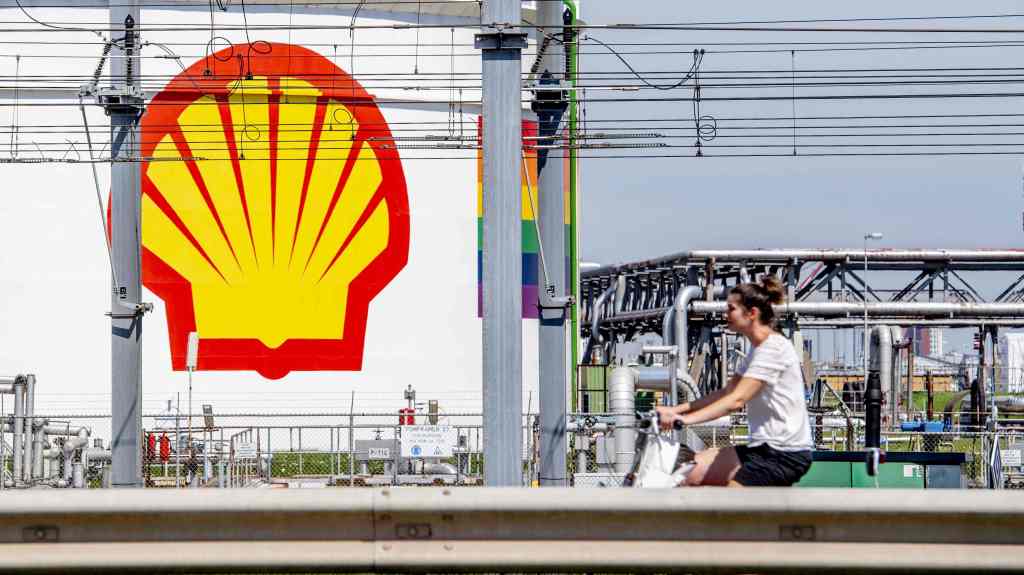Shell’s Potential Acquisition of BP Faces Major Challenges
Analysts indicate that Shell may find it difficult to rationalize a takeover of BP, suggesting that BP’s share prices, when viewed in conjunction with its substantial debt, are not as attractively valued as they may initially appear.
As Europe’s largest oil and gas company, Shell is advised against hastily pursuing its beleaguered competitor, expressing that any move toward acquisition is unlikely in the near term.
Reports from Bloomberg indicated that Shell is consulting with financial advisors regarding a potential acquisition of BP, which has struggled with a decline in share value due to setbacks in its green energy strategies. Shell is reportedly waiting for further declines in BP’s stock and the overall oil market before making any decisions.
As of Tuesday’s closing, BP’s stock experienced a slight increase of 1.4%, while Shell saw a decline of 2.1% in its share prices.
According to Joshua Stone from UBS, a merger between Shell and BP could establish a formidable European energy entity capable of competing equivalently with major US firms. However, he, along with other analysts, highlighted numerous obstacles associated with a possible deal, especially given BP’s significant net debt of $27 billion.
“With a leverage ratio of 48%, BP stands as the most heavily leveraged stock among the major oil companies,” noted Stone. “Although BP’s share price may seem low, this is misleading as it does not account for the considerable liabilities that would need to be addressed.”
Biraj Borkhataria from RBC Capital Markets pointed out that BP’s shares have performed 17% worse than Shell over the past year and an alarming 84% worse over the past five years when considering total returns.
However, Borkhataria argued that BP’s enterprise value appears more robust than its market capitalization suggests due to its higher degree of debt.
Shell’s CEO, Wael Sawan, emphasized last week that the company prefers to focus on share buybacks over pursuing BP, pledging to maintain a conservative approach and highlighting the high bar for any potential inorganic growth opportunities.
A representative from Shell reaffirmed the company’s commitment to creating value by focusing on performance, discipline, and overall simplification.
As the leading independent liquefied natural gas (LNG) trader globally, Shell could see its LNG market influence amplify significantly through a BP acquisition, potentially capturing about 20% of the global market.
While BP’s assets in the Gulf of Mexico could be attractive to Shell, questions remain about the desirability of BP’s other international holdings, including those in Azerbaijan, India, Iraq, and Abu Dhabi, as well as whether Shell would want to invest in BP’s trading operations, given Shell’s existing capabilities.
Borkhataria argued that an acquisition could dilute key metrics for Shell without solving the strategic hurdles the company faces, such as transitioning towards sustainable energy sources while securing long-term oil and gas supplies.
Given Shell’s consistent messaging about its strategic focus since early 2023, such a deal would contradict previous statements and might undermine its credibility among investors, according to Borkhataria.
“Continuing with its current strategic plan while pursuing smaller, more targeted mergers and acquisitions would serve Shell better,” he concluded.
Currently, BP is facing pressure from Elliott Management, an activist investor that holds just over 5% of its shares.
Stone from UBS pointed out the challenges posed by potential acquisition demands from Elliott and others, which could complicate any takeover discussions.
He noted the historical trend of major mergers and acquisitions in the sector, suggesting they typically occur 6-12 months after oil prices hit a low. Though oil prices have dropped by 20% year-to-date, many companies remain skeptical that the worst is over.




Post Comment